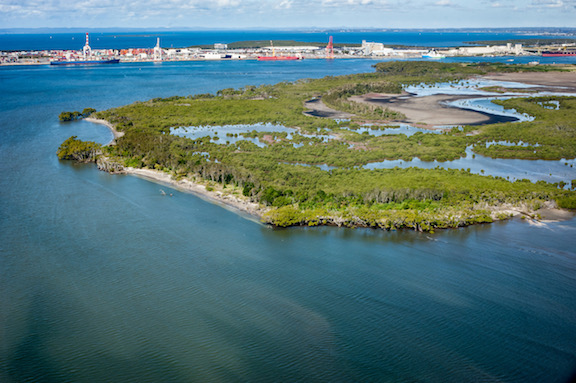Four new postdoc and science communicator positions to work on the global health of wetlands
Applications for these jobs have now closed, but I have kept the post here for reference
GLOW is a program developing and applying globally applicable assessments of coastal wetland health to drive actions and investments towards protection, restoration and improvement of wetlands worldwide. We are hiring three research fellows in ecology, statistical modelling and software engineering, and a science communicator, to work on this project.
See below to apply.
Program overview
Coastal wetlands – mangroves, seagrass, saltmarsh and estuaries – are valuable ecosystems with high biodiversity. Long favoured as sites for human settlements, they provide us with safe ports, fisheries resources, and access to fresh water. They are critically important in the production of seafood and they assist in protecting coastlines from extreme weather events, now and as sea levels rise.

However as the world’s coastal cities continue to grow and industrialise, many coastal wetlands are facing major declines in ecosystem health. We therefore propose to shine a spotlight on where the problems are, what needs to be done to protect what we have, and where rehabilitation will be most effective.
To achieve this, we are assessing coastal wetland health around the world, to:
-highlight the most urgent issues facing coastal wetlands -guide targeted investment and practical actions towards protection and rehabilitation
We will:
-develop and apply globally applicable measures of coastal wetland ecosystem health, -identify locations most in need of protection and rehabilitation, as a guide to where investment in conservation actions can be most effective, -build web-based scenario models to help conservation-focussed projects identify cost effective options for protection and rehabilitation.
We are kicking off the project at six trial locations: Portugal, South Africa, India, China, Australia, Vanuatu. And then expanding to the rest of the world’s coastal wetlands. Positions available
To achieve the Program’s objectives, Griffith University is recruiting a science team capable of solving significant marine science challenges.
This is an opportunity to be part of a major initiative promoting the health of key ecosystems – mangroves, saltmarsh, seagrass and estuaries – and to advance the science of urbanisation, multiple stressors, climate responses and automated monitoring. Researchers will work in a supportive team with complementary skills in ecology, statistical modelling, big data, automation and science communication.
This four-year, internationally funded program is based at Griffith University’s largest campus on the Gold Coast, southeast Queensland, Australia. This is a hub for marine science, in a city surrounded by surf beaches, estuarine wetlands and montane rainforest, and with easy access to two international airports.
Positions available:
Use individual links above for more information. For enquiries, contact Program Director, Professor Rod Connolly (r.connolly@griffith.edu.au), or Research Leader, Dr Chris J Brown (chris.brown@griffith.edu.au).